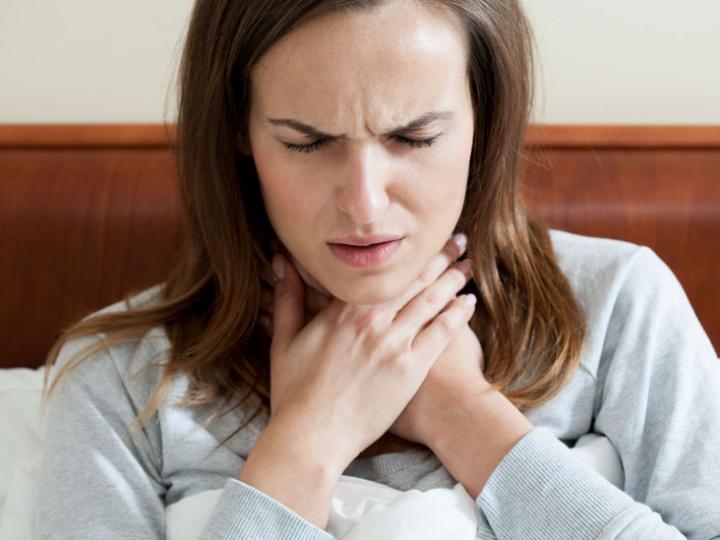
Laryngitis is an inflammatory process that spreads to the mucous membrane of the larynx, involving in this process a vocal cords. As a rule, an acute process proceeds with an increase in temperature, a "barking" cough, and may be accompanied by pain when swallowing. As the process involves the vocal cords, the voice becomes hoarse, rough, or even absent.
To avoid such undesirable consequences with inflammation of the larynx, including the spread of infection to the trachea and bronchi, it is necessary to consult a doctor at the first symptoms of the disease.
Laryngitis reasons
The disease can be caused by damage to the lining of the larynx and upper trachea, which leads to acute inflammation leading to laryngitis. The most common causes of laryngitis can be viral diseases and various irritants:
flu;
Among the factors that predispose to inflammation of the laryngeal mucosa, include the impact of a number of physical factors:
Laryngitis symptoms
The first signs of acute laryngitis are pain and sore throat when swallowing, fever, and general weakness. The cough with inflammation of the larynx in the initial stages of the disease is rough, barking and dry, and then phlegm may appear.
The spread of inflammation to the vocal cords is accompanied by hoarseness, rudeness, or disappearance of the voice. The development of breathing difficulties with laryngitis is caused by a narrowing of the glottis as a result of edema and thickening of the vocal cords.
Chronic laryngitis is manifested by such signs as hoarseness, rapid fatigue of the voice, a feeling of tickling and pressure in the throat, which causes a persistent cough. During inflammation, these symptoms become more pronounced.
It is also important to remember that laryngitis in children is much more severe than in adults. In children, as a rule, symptoms appear at night, child wakes up in a strong sweat, shows anxiety, breathing becomes very difficult and noisy, lips turn blue, occurs a strong acough, because the lining of the larynx swells so much that it restricts the flow of air to the lungs. There is a great risk of developing respiratory failure and the phenomena of lining laryngitis, which already requires urgent help.
Laryngitis diagnostics
Confirming the diagnosis of laryngitis is possible only with the help of modern examination techniques. The doctor begins the initial examination of the patient by collecting complaints, medical history and examining the larynx. During a medical examination, the condition of the mucous membrane of the larynx and the patient's vocal cords is checked. Dysphonia (weakness, hoarseness of the voice) is also assessed, the symptoms are specified.
Among the instrumental methods in otorhinolaryngology, to detect inflammation of the larynx, apply direct and indirect laryngoscopy, through which the doctor can to determine the nature and extent of the pathological process. Most often, indirect laryngoscopy is used, which allows to assess the condition of the laryngeal mucosa, the mobility of the vocal cords and the width of the glottis. Direct laryngoscopy is performed under general anesthesia and is used according to indications.
Laryngitis treatment
Treatment, as a rule, is carried out on an outpatient basis and, if properly organized, leads to a complete cure within 5-10 days.
Usually, to relieve puffiness, doctors prescribe antihistamine drugs. Coughing fits are relieved by taking bronchodilators. Also, the otolaryngologist can prescribe physical procedures - inhalation of the larynx.
For a speedy cure, strict adherence to the appropriate regimen for the patient is required:
Leave a Comment